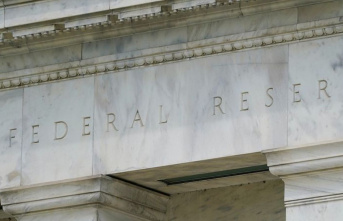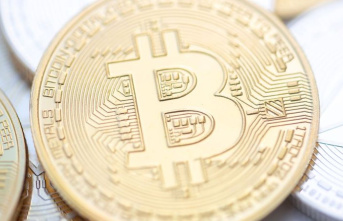The majority of the value created for investors on the German stock market is accounted for by very few stocks. In the past 20 years, 1.7 trillion euros in value have been achieved through price gains, dividends and share buybacks, as a new study by the Flossbach von Storch Research Institute shows, a think tank of the Cologne-based asset manager of the same name with around 70 billion euros under management.
However, since January 2003, many German stocks have not brought investors any money, while twelve stocks have already accounted for half of the total value created.
For the study, all 1,000 shares of German companies that were publicly traded in the Prime Standard and General Standard segments of Deutsche Börse between the beginning of 2003 and December 2022 were analyzed. The experts measured the value creation of the stocks against the yield on Bunds with a remaining maturity of one month in order to create a comparison with very short and safe investments - similar to keeping money in the account during the years of low interest rate policy. Stock returns above those of such Bunds were defined as value creation. The start of the study was set for January 2003, so that the stock market was examined from a low after the collapse of the Neuer Markt.
The result: A good half (52 percent) of the total value created was attributable to dividends. The remaining 41 percent came from price increases and 7 percent from share buybacks.
Shares worth 1.7 trillion euros
If you list the values created by all shares in a ranking, this results in a total of 1.7 trillion euros. The amount is already reached with the first 118 shares, around 12 percent of the paper. Some stocks behind it also created value, but their contribution was eaten up by loss-makers on balance. "Only a few large, mostly well-managed companies in attractive sectors dominate the German stock market," says study author Philipp Immenkötter. "They have been listed for a long time and have grown over the years."
According to the study, the Dax companies Siemens, SAP, Allianz, Mercedes-Benz Group and Deutsche Telekom created the greatest value for investors with over 75 billion euros each. It was followed by BASF, BMW, VW (common shares), Munich Re and Deutsche Post. Almost all of the shares are also among the major dividend payers in the Dax. The largest value destroyers since 2003 include the papers of Commerzbank, the real estate financier Hypo Real Estate Holding and Deutsche Bank, which ended up in last place (1013) with almost 25 billion euros in value destruction. The insolvent payment service provider Wirecard came in 938th place.
However, the picture is also related to the period under investigation: If the analysis had been carried out before the collapse of the Neuer Markt, Deutsche Telekom, for example, would have done worse.
For investors, the weak performance of the vast majority of papers means that "great caution is required when choosing stocks," wrote author Immenkötter. Just under 58 percent, i.e. six out of ten German stocks, generated value in the long term.
It is well known that investors take high risks with individual stocks, even in large corporations. Experts therefore advise spreading stock market investments very broadly and globally - for example with funds or cheap exchange-traded index funds (ETFs) that do not require a fund manager. Because very few investors - whether private investors or professionals - manage to find the profit makers on the stock exchanges in the long run.






